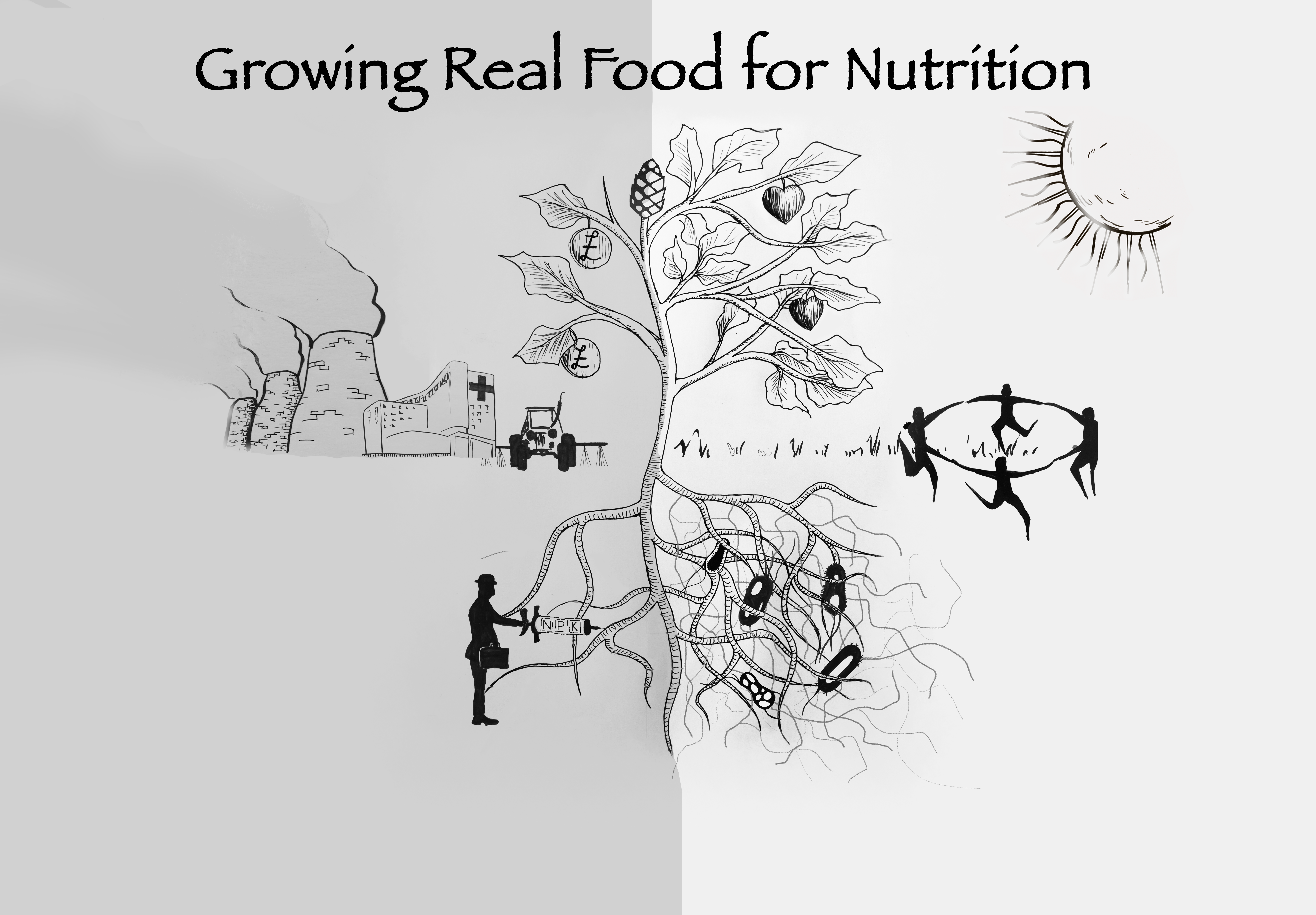
Growing real food for nutrition: Measuring nutrient density to improve citizen and planetary health
Hosted by Elizabeth Westaway and colleagues.
Measuring food for nutrient density can indicate the health of soil and plants, and show whether the microbial ecosystem surrounding a food plant is broken or harmonious. High nutrient density is indicative of a harmonious ecosystem where the transfer of energy and matter (nutrients) is increased.
By collaborating with nature, humans can become part of a healthy ecosystem. Hence, defining food quality by its potential to deliver health for both people and planet requires humans to work closely with soils and plants to optimise living processes that are nourishing. This can be measured by nutrient density, which reflects the health of an ecosystem – the aim for nature-friendly farming practices.
This session increased awareness about the importance of growing and eating nutrient dense food, introduce how to measure and increase nutrient density, and showcased different organisations/projects that are currently working on nutrient density to restore soil health, and improve nutrition for better citizen and planetary health.
Speakers/hosts:
Sue Pritchard (session Chair) is Chief Executive of the Food, Farming and Countryside Commission, a newly independent charitable organisation working across the UK and funded by Esmee Fairbairn Foundation. Its mission is to help implement the recommendations contained in its reports in June 2019, accelerating the transition to a fair, sustainable food and farming system and a thriving countryside, reversing climate change, restoring nature, and improving public health and wellbeing. Sue runs an organic, permaculture livestock farm in Wales, home to the Silver Birch Foundation, a charity providing education, training and development for disaffected young people, in partnership with local schools.
Dan Kittredge has been an organic farmer for more than 30 years, and is the founder and executive director of the Bionutrient Food Association (BFA), a non-profit in the USA whose mission is to “increase quality in the food supply.” Known as one of the leading proponents of “nutrient density,” Dan works to demonstrate the connections between soil health, plant health and human health. Out of these efforts was born the Real Food Campaign which has engineered a prototype of a hand-held consumer spectrometer designed to test nutrient density at point of purchase. Via the Bionutrient Meter, the goal is to empower consumers to choose for nutrient quality and thereby leverage economic incentives to drive full system regeneration.
Matthew Adams is a Deep ecologist, Environmental Manager (B.Sc.) and was Director of The Good Gardeners Association (2000-2011). His work focuses on developing projects for education and research around growing food for nutrition. Author of ‘Beyond Organic, a Vision of the Future’, published in the Soil Association’s journal Mother Earth, Matthew contends that food quality should be defined by its nutrient content, allowing growing practices to be more intuitive and systems-based rather than limited by certifications and yield quotas.
Gillian Butler spent over 40 years working with livestock farmers, mostly focusing on animal feeding, afterwhich it became apparent that differences in how we manage our animals has a bearing on the food they produce. Her current research considers the impact of management on farms (mostly down to animal feeding) on food quality, linked to consumer health – aiming to identify key action necessary to produce milk, meat and eggs to enhance, rather than challenge, health.
Patrick Holden is the founder and chief executive of the Sustainable Food Trust, an organisation founded in 2012 and working internationally to accelerate the transition to more sustainable food systems. Prior to this he was director of the Soil Association (until 2010) during which time his advocacy and campaigning for more sustainable food systems was underpinned through the development of the organic standards and market-place. His farming experience spans nearly 50 years, centred on Holden Farm Dairy, now the longest established organic dairy farm in West Wales, where he produces Hafod cheese from the milk of his 80 Ayrshire cows. He was awarded a CBE for services to organic farming in 2005, is Patron of the UK Biodynamic Farming Association and was elected an Ashoka Fellow in 2016.
Patrick is a regular writer, broadcaster, and speaker at public events.
Elizabeth Westaway is an international public health and nutrition specialist, who has worked as a practitioner, researcher and consultant in academia, NGOs and the UN on health, nutrition, food security and agriculture projects in emergency and development contexts of sub-Saharan Africa and Asia. She has a PhD in International Development from the University of East Anglia, and was formerly on the steering group of People Food Power and Nottingham Good Food Partnership. Her current research interests are food quality, social prescribing and regenerative healthcare.
Matt Dunwell has run Ragmans Lane Farm, a 60 acre farm in the Wye Valley, using Permaculture principles for 30 years. Over this time, he has hosted hundreds of courses in Permaculture and sustainable land use with over 2,000 people attending various courses. Jairo Restrepo and Juanfran Lopez both teach at Ragmans developing the understanding and practice of biofertilisers in a temperate climate. Matt now makes and applies biofertilisers at Ragmans using them on 8 acres of organic apple trees.
You can read the session outcomes here.